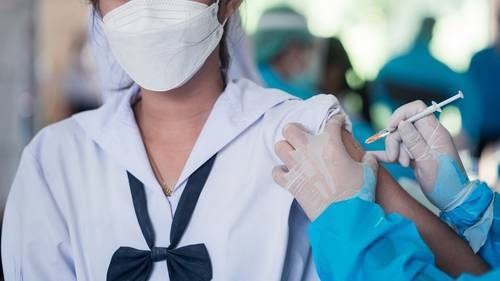Vaccines have been a vital tool in protecting people from diseases for more than two centuries. They have helped keep families and communities healthy and safe, and the value of vaccines is immeasurable.
The last week of April marks World Immunization Week, which aims to raise awareness about the importance of vaccines in protecting people of all ages against preventable diseases.
This year’s campaign comes at a crucial moment for immunization as the COVID-19 pandemic has disrupted immunisation services, leading to a significant decline in vaccination rates. This year’s theme is “The Big Catch-up,” which represents a global push to vaccinate millions of children and return to pre-pandemic vaccination levels.
The Need for Catch-up Vaccination
The pandemic has caused significant disruptions in routine immunisation programs globally, and millions of children have missed out on essential vaccines. Many countries have also had to suspend or delay immunisation campaigns due to lockdowns, supply chain disruptions, and other factors.
This has led to a significant decline in vaccination rates. As a result, vaccine-preventable diseases are on the rise again. According to the World Health Organization (WHO), there were around 20 million children who missed out on vaccines in 2020, leaving them vulnerable to life-threatening diseases.
The Big Catch-up Campaign
The WHO and its partners are working together to accelerate progress in countries to get back on track. This is to ensure more people, particularly children, are protected from preventable diseases. The Big Catch-up campaign aims to reach the millions of children who missed out on vaccines. The other goals are to restore essential immunisation coverage to at least 2019 levels. Additionally, it aims to strengthen primary health care to deliver immunisation and build lasting protection in communities and countries.
This year-long campaign will focus on raising awareness about the importance of vaccines and immunisation services and encouraging individuals and communities to get vaccinated. It will also aim to build trust in vaccines, address vaccine hesitancy, and ensure that vaccines are accessible and affordable to everyone.
The Role of Healthcare Professionals
Healthcare professionals play a crucial role in ensuring that immunisation services are accessible and available to everyone. They are responsible for administering vaccines, monitoring vaccine safety, and providing education and advice to patients and communities.
In addition to routine immunisation programs, healthcare professionals also play a critical role in implementing catch-up vaccination programs. They must identify and reach out to individuals who have missed out on vaccines and ensure that they receive the appropriate vaccines.
The Importance of Immunisation
Immunisation is a safe and effective way to protect individuals and communities from vaccine-preventable diseases. It is one of the most cost-effective public health interventions and has helped prevent millions of deaths globally.
Vaccines are essential in protecting people of all ages, from newborns to older adults, against a range of infectious diseases. They are particularly important for vulnerable populations, such as pregnant women, people with chronic illnesses, and those with weakened immune systems.
Conclusion
World Immunisation Week 2023 is a critical turning point for immunisation. After more than two years of pandemic disruptions, it is time to catch up, restore, and strengthen immunisation services. The Big Catch-up campaign represents a global push to vaccinate millions of children and return to pre-pandemic vaccination levels. Healthcare professionals play a vital role in ensuring that immunisation services are accessible and available to everyone. By working together, we can ensure that more people, particularly children, are protected from vaccine-preventable diseases and lead happier, healthier lives.

